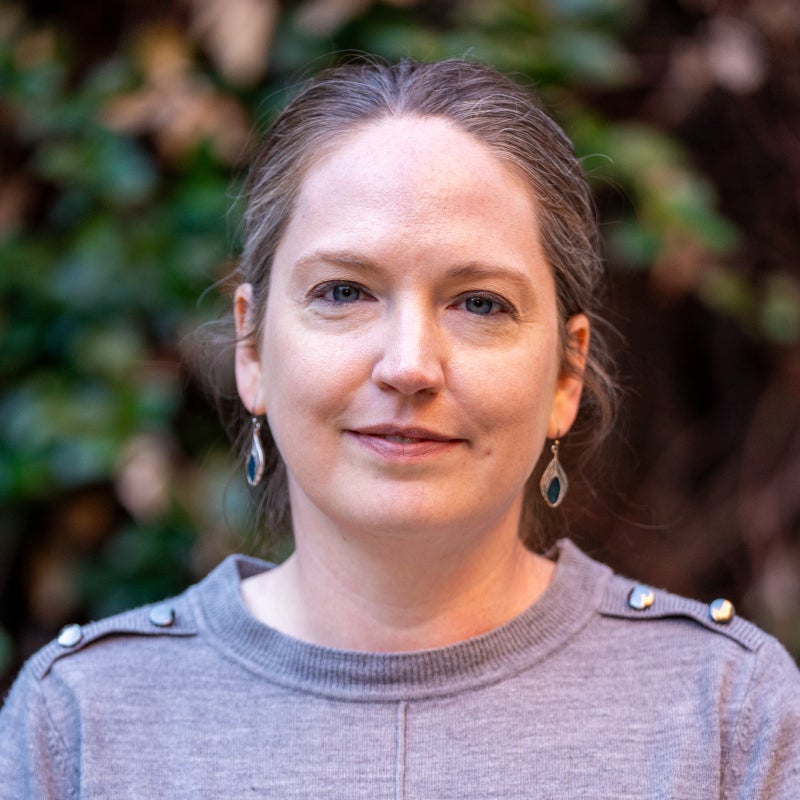
Kendra Slayton received her PhD from the University of Tennessee, Knoxville in 2019. She specializes in late medieval literature and Middle English, with particular interests in Chaucer studies as well as medieval mysticism. Professor Slayton is also interested in global medieval culture and comparative literary studies, informed in part by her own time living and teaching in Japan between undergraduate and graduate school as part of the JET Programme. Her scholarship has covered topics ranging from the use of classical motifs in medieval romance to the modern medievalisms of authors like Angela Carter, in addition to articles and talks on pedagogy, with publications in journals such as The Chaucer Review and Critique.
Dr. Slayton is originally from Michigan and came to FSU after teaching as a postdoctoral fellow at Georgia Tech and as a Visiting Assistant Professor at Clemson. She joined the FSU Honors Program faculty in 2023. Outside of work, Dr. Slayton enjoys fantasy and sci-fi, yoga, and all things related to food. She also has two cats and would be happy to inundate you with photos.
Honors Signature Courses
- IDH3104: Nature vs. Nurture in Premodern Europe
- IDH3115: Mapping the Middle Ages
- IDH3155: Breaking Barriers: Women in Medieval Europe

